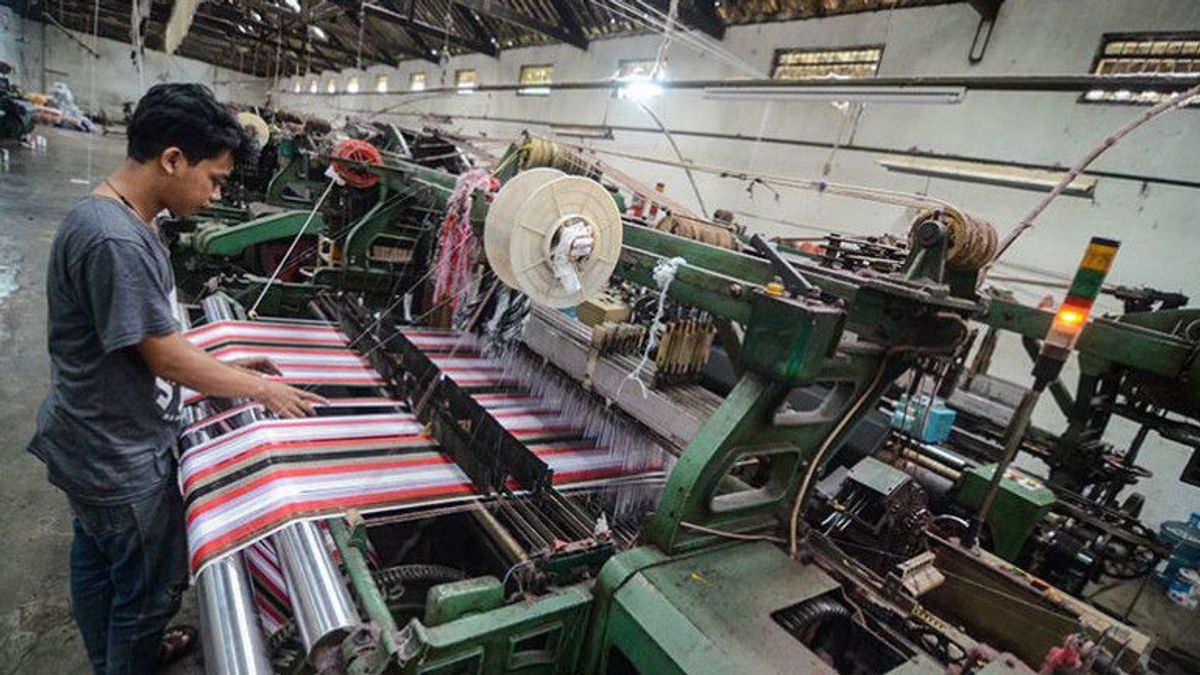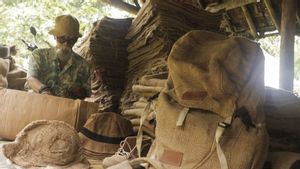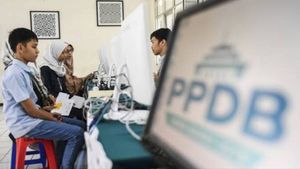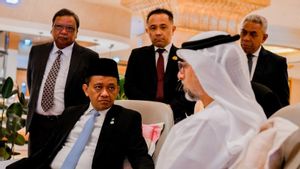JAKARTA - The national textile industry is encouraged to apply sustainable principles to all operational targets by the General Chairperson of the Indonesian Chamber of Commerce and Industry (Kadin) Arsjad Rasjid.
"This is in line with Kadin Net Zero Hub, which is an ecosystem that connects all stakeholders in energy transition in efforts to decarbonize," Arsjad said in a statement in Jakarta, quoted from Antara, Thursday, December 1.
Arsjad conveyed this at "Indonesia Sustainable Conference 2022" which was organized by a non-textile non-profit institution, the Textile Lestari Chain (RTL).
Meanwhile, Deputy for Economic Affairs of the Ministry of National Development Planning (PPN)/National Development Planning Agency (Bappenas) Amalia Adininggar Widyasanti emphasized that Bappenas is committed to participating in the formation of a master plan for Indonesian textiles.
According to Amalian, the master plan includes a roadmap for the transformation of a sustainable textile and fashion industry.
"With collaboration, later we can draw up a roadmap that is in line with the SDGs principle, namely with a thematic, holistic, integrative and spatial development planning approach," he explained.
Meanwhile, the General Chairperson of RTL Basrie Kamba said that sustainable fashion and fashion circulars are not just a trend that appears for a moment, then disappears, but a real transformation that needs to be done continuously.
"Only with collaborative actions including conducting several pilot projects between stakeholders, including industry, academics, designers, international brand owners, and the government, Indonesia will be able to overcome the challenges and get a portion of the market which is currently still in the range of 10 billion US dollars," Basrie said.
According to Basrie, the global fashion industry worth US$1.3 trillion per year is entering a sustainable and circular development era.
Indonesia, with an export value of 13 billion US dollars last year, is still an important textile producer and the core of the world's supply chain, for that Indonesia needs to seize this very large opportunity.
"Reforming the circular industry chain and circular economic practices in the global TPT industry will certainly provide challenges as well as opportunities for Indonesian players," Basrie said.
The English, Chinese, Japanese, Arabic, and French versions are automatically generated by the AI. So there may still be inaccuracies in translating, please always see Indonesian as our main language. (system supported by DigitalSiber.id)












